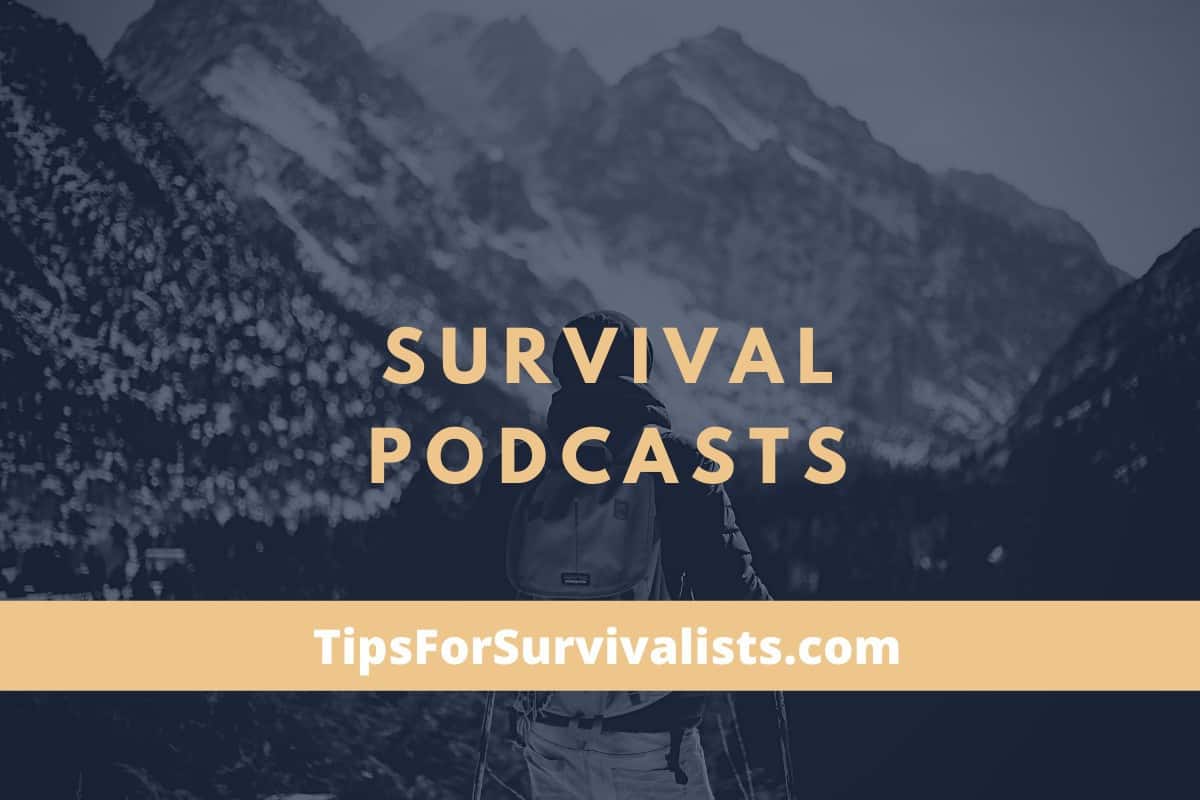In turbulent times, the concept of doomsday prepping has gained significant attention. It involves preparing for catastrophic events that could potentially lead to the collapse of the world as we know it. Many Christians believe in the prophecy of the end-time, and as a result, individuals known as preppers are taking proactive measures to physically prepare for such eventualities.
What is Doomsday Prepping?
Doomsday prepping is the act of actively preparing for cataclysmic or catastrophic events that could bring about the end of the world as we know it. It involves stockpiling essential supplies, building secure shelters like bunkers, and acquiring vital survival skills to cope with emergency situations. While a lot of people in the media tend to only focus on their version of so-called doomsday preppers, it’s a much more common trait among people who have lived through the past few years and witnessed what happened in the world.
Understanding the Concept of Doomsday Prepping
Doomsday prepping is based on the belief that there is a possibility of significant disruptions in the future, and individuals must take steps to ensure the safety and well-being of themselves and their immediate family in such scenarios. Preppers envision potential calamities such as natural disasters, nuclear war, massive power outages, social collapse, or even apocalyptic events.
The general idea is that you want to be prepared for any of the possible situations that could arise in your area. Even now, people like Mark Zuckerberg are building massive $100 million dollar compound. Why is he building it in Hawaii though? I’ll never know. Maybe he knows something that we don’t and he’s just getting out ahead of it.
History and Evolution of Doomsday Prepping
The history of doomsday prepping dates back to ancient times, where communities would gather and store food and supplies for challenging periods. If you think about it, our grandparents were preparing for events like these because they lived through difficult events in their lives. It wasn’t called doomsday prepping either, it was just that they were prepared.
In modern times, the idea of prepping has evolved, and individuals are now preparing for a wider range of potential threats, including economic instability, political unrest, and global pandemics.
Common Misconceptions About Doomsday Prepping
Despite the growing number of preppers, there are still misconceptions surrounding doomsday prepping. Some believe that preppers are paranoid individuals, while others may view them as doomsayers. However, preppers assert that they are merely taking a proactive approach to ensure their safety and that of their loved ones in the face of uncertainty.
You never know when something bad is going to happen and it’s best to be prepared. You want to know that if something happens, you can be sure your family is ready for it.
How to Start Preparing for the End of the World
If you are considering becoming a doomsday prepper, there are essential steps you can take to begin your preparations. Building an emergency stockpile, including food, water, and medical supplies, is a fundamental aspect of prepping. Additionally, constructing a secure bunker or safe haven, as well as acquiring and honing crucial survival skills, is essential for withstanding potential catastrophes.
Creating an Emergency Stockpile
A crucial aspect of doomsday prepping is creating an emergency stockpile of supplies that will sustain you and your family in times of need. This stockpile includes non-perishable food items, water purification tools, first-aid kits, and other essential supplies needed to survive in the face of an emergency or disaster.
You don’t need to buy everything at once. With how much inflation has been ruining our lives lately, we don’t have a lot of disposable income to buy prepping supplies. My family tends to add a little bit each time we go to the grocery store. We’re aiming to get things that have a long shelf life and will be usable for us for years.
Building a Bunker or Safe Haven
In anticipation of potential unrest or calamity, preppers often invest in constructing a secure bunker or safe haven. These structures provide protection and shelter during emergencies, offering a fortified space to ride out disruptions and ensure the safety of oneself and loved ones.
I know we would all love to have billions of dollars like some people in the United States that are building bunkers, but most of us don’t. We can just do what we can with what we’ve got.
Learning Essential Survival Skills
Equipping oneself with essential survival skills is critical for navigating challenging situations. Skills such as first aid, self-defense, foraging, and basic construction can be invaluable in coping with the aftermath of a catastrophe and ensuring one’s survival in a harsh, post-disaster environment.
Learning your neighbors names and becoming friendly with them will help in a true sky is falling situation. After all, without community, what are we?
Understanding the Signs of a Real Doomsday
Recognizing and interpreting signs of a potential doomsday event is essential for preppers. By understanding these indicators, individuals can be better prepared to face impending catastrophes and take necessary action to safeguard themselves and their loved ones.
It’s hard to tell with how the media constantly sensationalizes things now too.
Recognizing Warning Signs of Impending Catastrophe
Doomsday preppers are vigilant in identifying warning signs of impending catastrophe, which can include social or political unrest, economic instability, and environmental degradation. By staying informed and observant, preppers can prepare for these potential crises and mitigate their impact.
Interpreting Doomsday Prophecies and Verses
For many Christians, doomsday prophecies and verses from religious texts, such as Luke, Psalms, Isaiah, and Hebrews, hold significance in forecasting the end times. Understanding and interpreting these prophecies can influence the preparations made by believers, as they align their actions with the teachings and warnings found in these sacred texts.
Preparing for the Great Tribulation and Wrath
The concept of the great tribulation and divine wrath, as mentioned in biblical scriptures, serves as a fundamental consideration for doomsday preppers. Preparing for these events involves not only physical readiness but also spiritual readiness, as individuals aim to align themselves with religious teachings and prepare for the potential manifestation of such prophetic events.
Religious Views on the End Times
Many Christians hold profound religious views regarding the end times, also known as eschatology. These beliefs shape their perspectives on doomsday, influencing their approach to preparing for potential apocalyptic events.
Exploring Different Religious Perspectives on Doomsday
Across various denominations and sects within Christianity, there exist differing perspectives on the end times. Interpretations of biblical passages and prophecies can vary, leading to diverse beliefs and practices surrounding the notion of doomsday and the preparations associated with it.
Preparing for the Return of Jesus and Apocalyptic Events
For Christians, the anticipation of the return of Jesus Christ and the culmination of apocalyptic events is a central tenet of their faith. This anticipation influences the actions of believers as they seek to align themselves with the teachings of their faith and prepare for the potential arrival of these significant events.
Adhering to Doomsday Prophecies and Warnings
Many Christians place profound importance on eschatological prophecies and warnings found in religious texts. These prophecies guide their preparations and instill a sense of urgency in ensuring that they are spiritually and physically prepared for the end times as foretold in these sacred scriptures.
Practical Doomsday Prepping Tips
As individuals consider embarking on the journey of doomsday prepping, there are practical tips and strategies to ensure they are adequately prepared for potential catastrophes.
Securing Necessary Supplies for Cataclysmic Events
Gathering essential supplies such as food, water, medical provisions, and tools for self-sufficiency is imperative for preppers. By securing these necessities, individuals can minimize the impact of catastrophic events and enhance their chances of survival during periods of turmoil and uncertainty.
Developing an Action Plan for Emergency Situations
Establishing a comprehensive action plan for responding to emergency situations is essential for doomsday preppers. Having clear protocols for evacuation, communication, and resource utilization can significantly improve the ability to navigate and endure challenging circumstances effectively.
Maintaining Mental and Emotional Stability During Calamities
Amidst the chaos and turmoil of calamities, maintaining mental and emotional stability is imperative. Preppers emphasize the importance of psychological resilience and emotional well-being as pivotal components of their overall preparedness for the end times.






